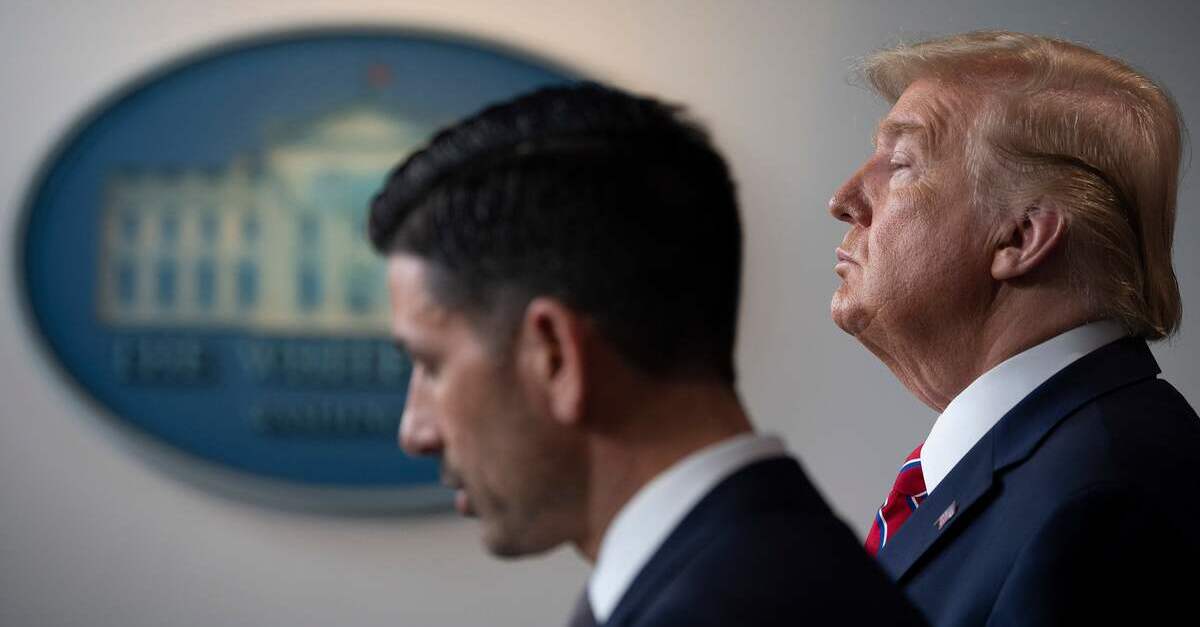
President Donald Trump has consistently made an end-run around congressional confirmation procedures while staffing his administration by relying on a law to install acting officials instead of having his preferred agency heads and deputies voted on by the full U.S. Senate. That tactic, however, has left the White House bereft of qualified experts necessary to actively and effectively combat the novel Coronavirus (COVID-19) pandemic and resulting fallout.
“How many cases of Coronavirus do we have right now in the United States?” Sen. John Kennedy (R-La.) asked Acting Department of Homeland Security Secretary Chad Wolf in late February.
Wolf replied with an answered that hedged the confirmed number of cases at that point while also noting that the administration had repatriated “an additional 20 or 30 some odd cases.”
“How many are you anticipating?” Kennedy asked.
“We do anticipate the number will grow,” Wolf replied. “I don’t have an exact figure for you though.”
“Do you have an estimate? Is someone modeling that? Do you have any way of guessing?” Kennedy pressed again.
The acting secretary simply didn’t have an answer.
“Again HHS, they’re medical professionals–” Wolf began.
“Well, yes, but you’re head of Homeland Security,” an exasperated Kennedy interrupted. “Your job is to keep us safe.”
“Yessir,” Wolf replied.
The exchange continued like this for over six minutes–with Wolf never quite able to give a straight answer and Kennedy repeatedly dressing him down for deferring to other agencies while seemingly unaware of basic facts about the virus and pandemic response.
At the time, Wolf’s replies did not inspire confidence and the acting director was thoroughly pilloried in the press. The sight and spectacle was seen as microcosm as of the Trump administration’s lack of staffing, knowledge, and preparation in the face of a dire threat the nation.
Wolf is in his role due to President Trump’s deep affinity for the Federal Vacancies Reform Act of 1998–a statute which allows the executive branch to staff up absent full Senate approval.
University of Texas Law Professor Steve Vladeck has been a steady voice cautioning against Trump’s unprecedented use of the act in order to sidestep Congress and thereby more or less effortlessly install loyalists in line with Trump’s and the Republican Party’s conception of federal governance.
Vladeck explained the basic contours of the act in a post for the Lawfare national security blog in June of last year:
[T]he FVRA, when not superseded by other statutes, gives the president a choice of three options with which to temporarily fill vacancies in senior government positions. The president may choose the “first assistant” to the vacant office, choose anyone currently holding a Senate-confirmed position in the executive branch, or choose a non-Senate-confirmed senior employee who has been serving in the same agency as the vacant office for at least 90 of the previous 365 days. Congress thereby gave the president far more flexibility than it probably meant to (and certainly more than it needed to), perhaps assuming that presidents would act responsibly—and that politics would prevent the president from taking advantage of the broad flexibility provided by the statute as a structural end-run around the Senate’s constitutional advise-and-consent role.
A few months into a pandemic predicted by some to last for one or two years and the administration’s woes are beginning to show an increasing amount of strain due to the dearth of qualified officials at the helm.
“Right now for the life of me, I don’t know who speaks for DHS,” Janet Napolitano, one of Barack Obama‘s Homeland Security secretaries, told the New York Times. “Having nonacting leadership, and I think having consistency in your leadership team and the accumulation of experience, really matters. And I think it would be fair to say the current administration hasn’t sustained that.”
That Thursday Times report highlighted some of the experience deficit:
One example is the Department of Veterans Affairs, which is legally meant to back up the nation’s health care system in an emergency. The secretary, Robert L. Wilkie, has no experience in emergency management, and he has been largely absent from meetings with senior officials on the pandemic. He recently fired his second in command, who had worked in past disasters, and his head of emergency preparedness retired. Mr. Wilkie took a short leave of absence two weeks ago as the crisis began to unfold in the United States.
In 2018, John Bolton fired a bona fide disaster expert in then-Homeland Security advisor Thomas P. Bossert. This resulted in a directorate dedicated to pandemic preparations being all-but shuttered.
Fissures, some pandemic-related and some not, have appeared in myriad other federal agencies as well, whether the Treasury, the Parks Service, Food and Drug Administration, the Bureau of Land Management, or Health and Human Services.
[Image via JIM WATSON/AFP via Getty Images]
Have a tip we should know? [email protected]